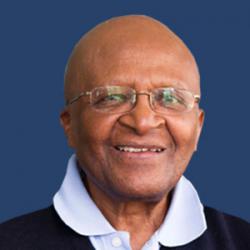The Elders call for more aid to help stabilise Zimbabwe
The Elders urge international donors to respond more swiftly, generously and creatively to Zimbabwe’s humanitarian crisis.
The Elders have written to development ministers in 18 donor countries and the European Commission*, urging them to respond more swiftly, generously and creatively to Zimbabwe’s needs by providing ‘humanitarian-plus’ assistance.
Since the formation of a government of national unity in Zimbabwe in February, schools and health services have reopened and there have been signs of economic progress, but most people are still living in conditions of serious deprivation.
The Elders are also concerned about the lack of political and judicial reform in Zimbabwe which suggests that there is considerable determination in some quarters to resist lasting political change. However, The Elders believe that in this context, the risks of inaction by donors outweigh the challenges of delivering increased aid.
“The inclusive government needs more support to ensure that it can initiate the urgent stabilisation and early recovery programmes that the people so desperately need,” said Archbishop Desmond Tutu, chair of The Elders. “Now is not the time for donors to take a ‘wait and see’ approach. This is the best chance Zimbabweans have had for peace and prosperity in decades.”
“There are times when a swift, generous and creative response is required”, said Kofi Annan, who visited southern Africa in November 2008 with Jimmy Carter and Graça Machel to draw attention to Zimbabwe’s humanitarian crisis.
“A rapid infusion of ‘humanitarian-plus’ resources is needed to help stabilise the country at this vulnerable stage in its recovery. Supporting the inclusive government to deliver better services will foster much needed change”, said Mr Annan.
Donors provided around $670 million in emergency aid to Zimbabwe in 2008 and more humanitarian assistance has been pledged for 2009, but they have indicated that they will not deliver long-term development support until the government implements much-needed political and economic reforms.
The Elders agree that full donor re-engagement should be linked to reforms, but in private letters sent to donors this week, they point out that there is a big gap between the provision of emergency food and medical supplies, and longer-term development assistance.
‘Humanitarian-plus’ funds are needed to bridge that gap – for example to rehabilitate water and sanitation infrastructure (the breakdown in water infrastructure was a major cause of the cholera crisis), provide teaching materials for primary and secondary schools, cover school fees for Zimbabwe’s estimated 1.3 million orphans and vulnerable children, support local food production, provide housing for the poor, manage waste and support the revival of the micro-finance sector. The Elders acknowledge donor concerns about the need for proper and transparent use of aid, but say that there are times when greater flexibility is required and suggest that ‘humanitarian-plus’ funds could be delivered through specially administered accountable mechanisms.
* Australia, Canada, the Czech Republic, Denmark, Finland, France, Germany, Ireland, Italy, Japan, the Netherlands, New Zealand, Norway, Spain, Sweden, Switzerland, the United Kingdom, the United States and the European Commission.
FEATURED ELDERS

Kofi Annan

